
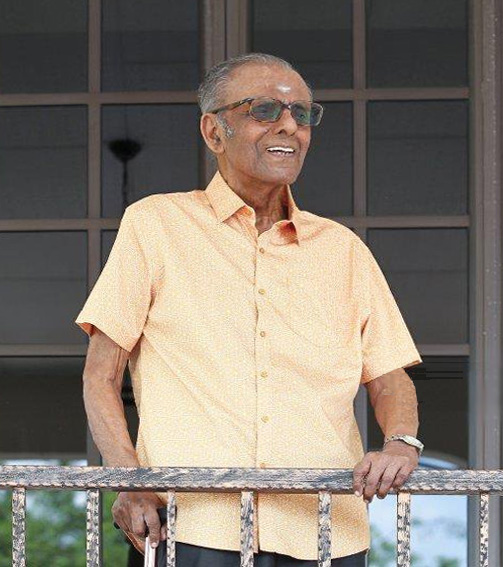
From sports to faith,
Datuk Vaithilingam's
lifelong fight for unity
Sep 13, 2025
HE gazes at me keenly from his seat, a slight smile playing on his face. At 91, agreeing to this interview is no small feat. Yet here we are, in Datuk Vaithilingam Ampalavanar's modest Petaling Jaya home, where he has graciously welcomed me to share his story.
If there's anyone whose story demands to be told, it is Vaithilingam - or Vaithi, as he's fondly known. Few have witnessed, as he has, the ebb and flow of a young nation finding its footing.
He has seen the birth and rise of sports in Malaysia, standing quietly in the wings as history unfolded. Beyond sports, he has also played significant roles in education and in promoting inter-religious understanding over the decades.
All this was done without fanfare or applause. Being an administrator was never glamorous, but it was a vital role - one that placed Vaithi at the heart of defining moments and gave him a rare front-row seat to milestones many only read about.
Now, his journey has been captured in a biography by editor and columnist A. Kathirasen. Vaithi: A Life of Service pays tribute to a man whose quiet dedication has left an enduring mark on Malaysia's sporting, educational and cultural landscape.
When I congratulate him on the book, he nods and thanks me simply, his response as understated as the man himself. Then, almost as if to explain, he says that having a book written about his life was the last thing he ever expected.
It was only during his 50th wedding anniversary in 2012, organised by his children, that the idea first began to take shape.
"I was told it was just a simple gathering," he recalls, smiling wryly, adding: "Then they took us to the Subang Golf Club - and there were around 300 to 400 people there. I was so surprised... it was such a grand thing."
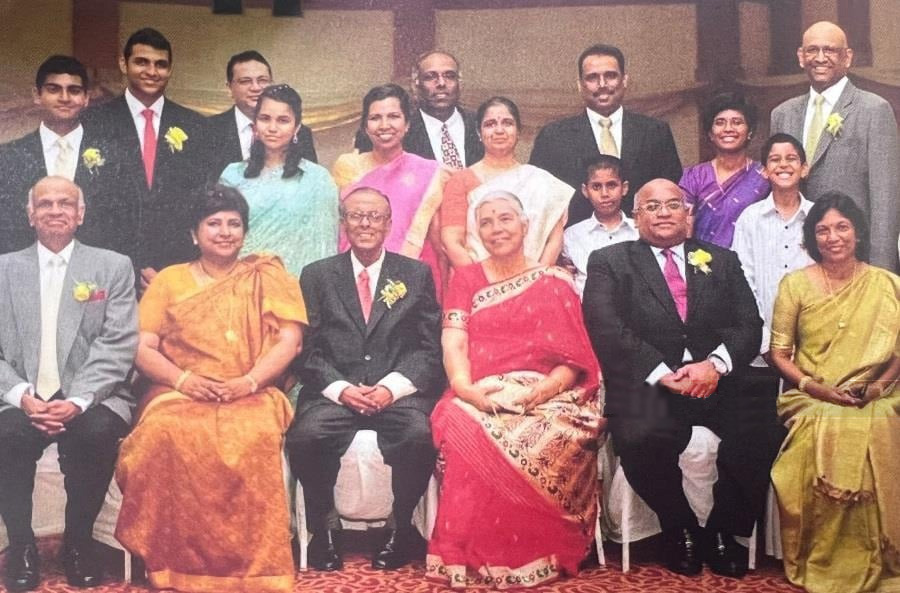
A family photo taken during Datuk Vaithilingam and Datin Pooranajothi's
50th wedding anniversary on March 24, 2012.
True to form, Vaithi downplays the significance. But his decades of work - from developing sports and shaping its administration to fostering inter-religious harmony, advancing education and championing humanitarian causes through the Malaysian AIDS Council - have touched countless lives. That night, people from all walks of life came together to celebrate him.
He gestures towards a framed family photograph on the dining room wall, taken during the anniversary celebration. "My children said, 'Papa, you must get your story out,'" he says.
DIFFICULT MOMENTS
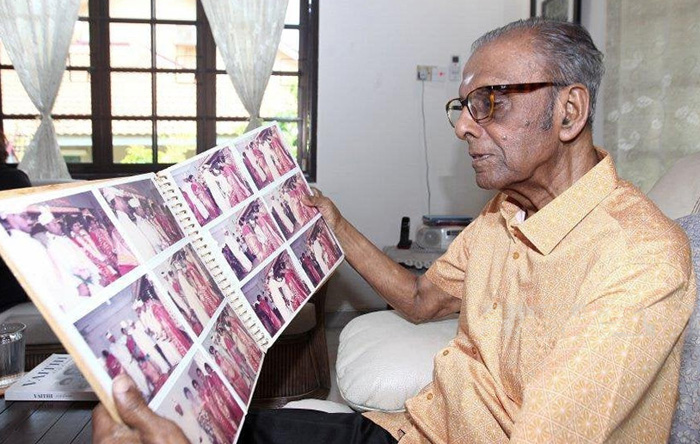
Looking through old photographs, Datuk Vaithi pauses to reminisce.
It would take nine years for the book to be completed - a long process marked by both milestones and heartbreak. "For every big thing that came along, there was a tragic moment that followed also," he muses.
Two significant people who had walked closely with Vaithi never got to see the book's completion. One of them was his wife and steadfast supporter, Pooranajothi.
A breast cancer survivor for more than 40 years, she was diagnosed with endometrial cancer in 2015. She fought bravely until her passing in 2018.
"2018 was a tremendous year for me," he notes, voice steady.
That same year, as president of the Malaysian Consultative Council of Buddhism, Christianity, Hinduism, Sikhism and Taoism (MCCBCHST), he was deeply involved in the high-profile Indira Gandhi case - a legal battle over unilateral child conversion that began in 2009. Vaithi played a pivotal role in bringing the case to public attention, standing by Indira through the years while working closely with her legal team, especially lead counsel Kulasegaran Murugeson.
It was only during Pooranajothi's funeral that Vaithi learnt of the Federal Court's landmark decision.
"The next day, during the funeral, Kula and Indira called my son," he recalls, adding: "My nephew, who's a lawyer, was also in touch and told me we'd won the case. Later, both Kula and Indira came straight from the press conference. Indira hugged me and cried loudly."
He pauses before continuing: "Another important person was my eldest son, Nantha Kumar, who was instrumental in mooting the idea of the book and getting it rolling. He coordinated and arranged everything."
Nantha had hoped the book would be published and launched on Vaithi's 90th birthday. The year 2024 was meant to be significant - Nantha would have turned 60, and the family was preparing for the wedding of his first grandchild.
Vaithi noticed how frail and tired his son looked. Within days, his condition worsened, and tests soon revealed he had advanced pancreatic cancer. Just 21 days after the diagnosis, he was gone.
"He passed away on March 2, last year - just four months before his 60th birthday," he says heavily. Finishing it without him, Vaithi admits, was one of the hardest parts of the nine-year journey - but it became a promise he felt compelled to keep.
EARLY YEARS
The book begins with Vaithi's father, Ampalavanar, who left Vaddukodai East
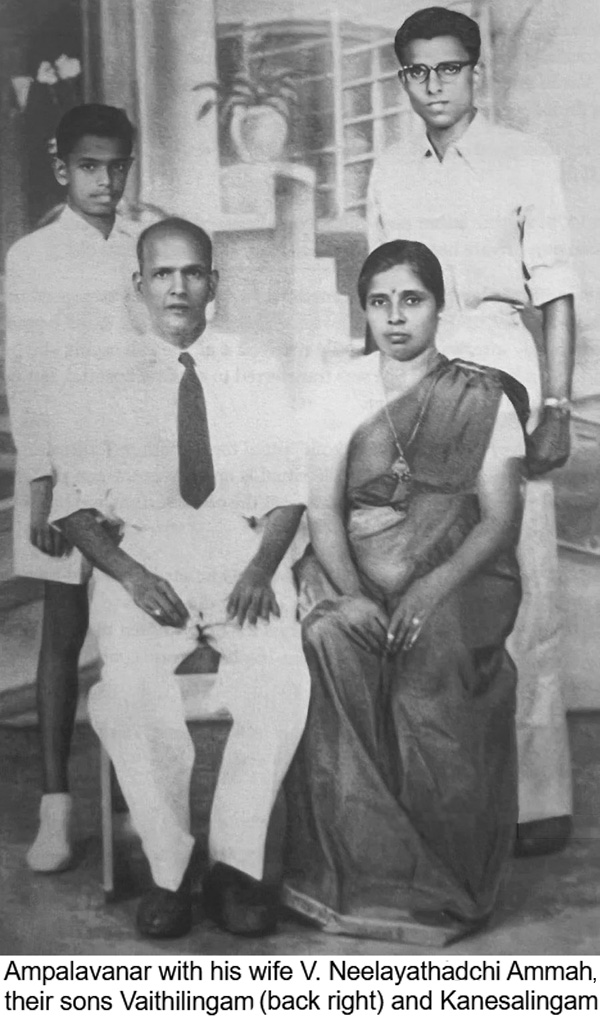 in Sri Lanka for Singapore, where he married V. Neelayathadchi Ammah. They raised two sons, Vaithilingam and Kanesalingam.
in Sri Lanka for Singapore, where he married V. Neelayathadchi Ammah. They raised two sons, Vaithilingam and Kanesalingam.
In December 1941, bombs fell on Singapore. Six-year-old Vaithi remembers the chaos vividly.
"I witnessed firsthand the fear of war," he says, adding: "Japanese soldiers armed with bayonets and rifles would search homes. We lived under constant threat."
Soon after, the family moved to Taiping under the Japanese administration. With schooling halted, Vaithi was sent to Seremban to live with his grand-uncle Selladurai, where he learnt English and Tamil at home while helping to tend chickens, a cow and a small vegetable garden.
He reflects: "I learnt the value of hard work. Those years instilled in me a deep sense of responsibility and discipline."
After the war, he returned to school: King George V in Seremban, then Batu Road Primary in Kuala Lumpur, and later the Victoria Institution, which shaped his outlook and discipline. In 1954, with his father in a non-pensionable post and nearing retirement, Vaithi left school to become a probationary teacher to support the family.
TEACHING MOMENTS
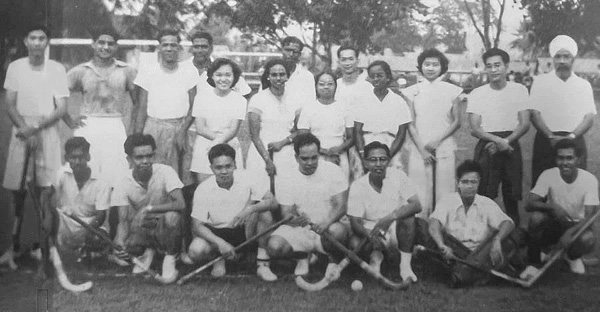
Teachers' get-together of Pasar Road English School and Batu Road Schoolin 1954. Wan Ariffin
Pawan Teh is in the last row, fourth from the left, with Vaithi in the middle of the same row
As a young teacher, Vaithi's life took an unexpected turn when he crossed paths with Haji Wan Ariffin Pawan Teh, a fellow educator and accomplished sportsman. In his third year of teaching, Wan Ariffin appointed him as his assistant - the beginning of a partnership that would shape the trajectory of Malaysian sports.
"Wan Ariffin was a gem of a human being," recalls Vaithi. "He laid the foundation for everything I would go on to do."
At just 23, Vaithi was handed a task that would change his life - organising the first-ever national inter-school football competition. Until then, football tournaments had been confined to district and state levels. With Wan Ariffin by his side, this milestone marked the start of Vaithi's deep involvement in national sports administration.
From there, his journey gathered momentum. Beginning as a district representative in the Selangor Schools Sports Council in the late 1950s, Vaithi became known as the man to call when technical expertise was needed.
His reputation grew beyond Selangor and eventually beyond Malaysia. In 1978, he helped establish the Asean Schools Sports Council, paving the way for collaboration and competition across the region.
But it wasn't just policy and structures that drove him. Vaithi poured his energy into nurturing young athletes, guiding students who would grow into household names. Among them were (ex-Victorian) Ishtiaq Mubarak, the 110m-metre hurdles champion, and (ex-Victorian) Zainon Mat, one of Malaysia's most respected cricketers. "These two were great prodigies," he says, pride unmistakable.
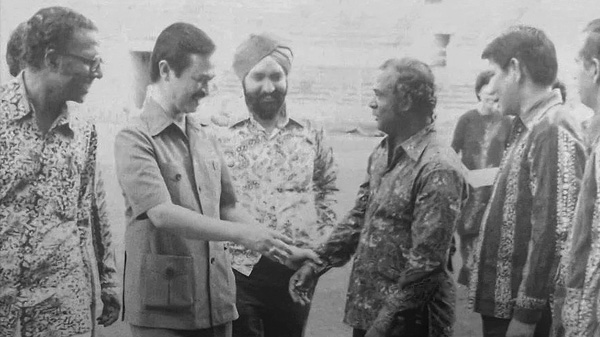
Datuk Vaithi (left) with then Education Minister Dato' Seri Abdullah Ahmad Badawi
at the Malaysian Amateur Athletics Union (MAAU) Annual Athletics Championship
Football remained a constant thread through Vaithi's life. Introduced to football administration by another mentor, T. P. Murugesu, then secretary-general of the Football Association of Selangor, he served as liaison officer and later deputy camp commandant for the prestigious Merdeka Cup.
The role sharpened his organisational and communication skills, and brought him face to face with Malaysian football legends like M. Chandran, R. Thanabalan, Soh Chin Aun and Mokhtar Dahari - players who defined an era.
He was also a pioneer, pushing for the inclusion of new sports that would later bring Malaysia glory. Softball entered schools under his watch, and rhythmic gymnastics - once a novelty - has since become a reliable source of gold medals at the Southeast Asian (SEA) Games and the Commonwealth Games. Vaithi even managed the Malaysian gymnastics team at the 1994 Commonwealth Games in Victoria, Canada.
For decades, he was a central figure shaping Malaysia's sporting landscape, from serving on the Selangor Sports Council for nearly three decades to advising on major projects like the State Sports Complex in Shah Alam.
His leadership at the 1998 Sukan Malaysia (Sukma) Games earned him the Tokoh Pentadbir Sukan award, and in 2012, his lifelong contributions were recognised with induction into the Olympic Council of Malaysia Hall of Fame.
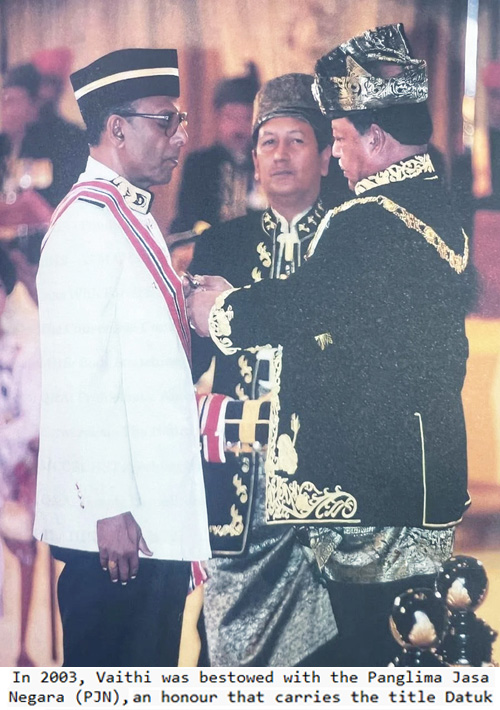
Yet, when Vaithi speaks today, there's a quiet frustration beneath the pride.
"The glory days of Malaysian football - and other sports - have yet to return," he laments, adding: "Sports everywhere is turning professional, but Malaysia is struggling to keep up. Football, for example, is in chaos. Half the players are professionals or semi-professionals, the other half are amateurs, and the organisers themselves aren't trained to manage the sport at a professional level."
He points to Johor Darul Ta'zim (JDT) as an example of what investment and resources can achieve, but stresses that other states are falling behind. "Malaysia must embrace professionalism," he says, adding: "Private companies should be encouraged to support clubs, players and events - not just in football, but athletics and other sports too."
For Vaithi, the solution is simple but urgent. "Sports officials need proper training to manage professional sports. Right now, we're caught in between neither fully amateur nor truly professional. Until we understand the necessity of professionalism in sports administration, we'll stay stuck in this middle ground."
Then his tone softens. Pride colours his voice when he recalls the decades spent nurturing young talents, building pathways and laying foundations that shaped Malaysia's sporting identity. But he knows more must be done.
"The foundations were laid a long time ago," he asserts. "We had the talent, the passion and the commitment. But without proper systems and professionalism, it's difficult to keep moving forward."
NATIONAL UNITY
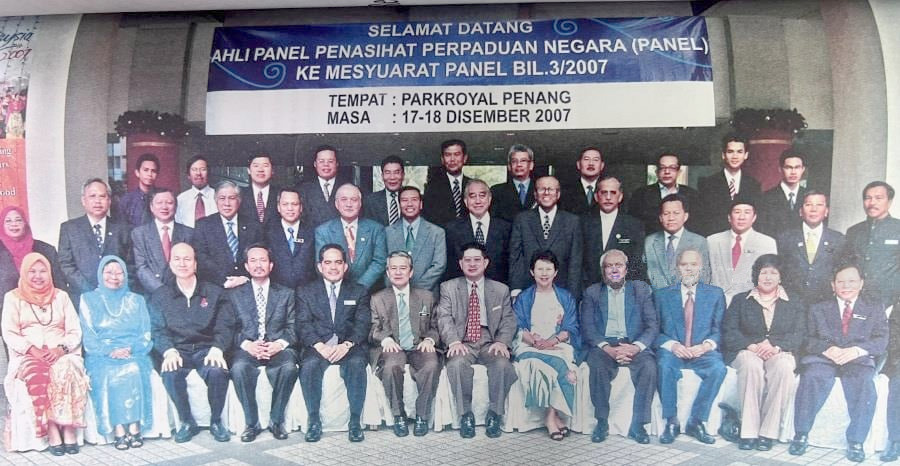
Attending a conference as a member of the National Unity Advisory
Panel in 2007. Vaithi is in the middle row, sixth from the right
But Vaithi's legacy extends beyond sports. The nonagenarian also hopes to be remembered for his efforts in fostering inter-religious understanding and unity through his leadership in the Malaysian Hindu Sangam and his influential role as president of the MCCBCHST.
"I take my example from my father, a devout Hindu," he says. Whenever his father, Ampalavanar, passed a place of worship, whether a church, mosque or temple, he'd place his hand on his chest as a mark of deep respect. "My father taught me to respect all religions," Vaithi adds with quiet conviction.
That early lesson shaped the way he approached leadership and community-building. For Vaithi, true progress comes through dialogue, not division.
"Whether it's sports, interfaith work or community leadership, I've always believed you achieve more by sitting down and talking," he says, adding: "When you listen and try to understand where the other person is coming from, you build trust. Without trust, you can't solve anything."
This philosophy guided his years at the MCCBCHST, where he often found himself mediating between groups with opposing priorities. For him, consensus was never about winning arguments but about finding common ground. It's a principle he believes Malaysia needs now more than ever.
"Unity has always been our strength," he explains. "We may come from different faiths and traditions, but we share the same hopes for this country."
His steadfast leadership reached beyond national borders. In August 2000, Vaithi represented Malaysia's non-Muslims at the World Millennium Conference at the United Nations headquarters in New York, where he presented a paper on Malaysia's success in cultivating harmony within a multiracial and multireligious society.
At home, Vaithi became a trusted voice in matters of faith and unity. Over 15 years, he served as a member of the National Unity Advisory Panel, working with five different Ministers of National Unity and offering his perspective on sensitive issues affecting non-Muslims.
"I've benefited from many experiences that taught me the value of unity," says Vaithi, adding: "Whether it was through sports, voluntary organisations, interfaith work or even during my time with the Hindu Sangam, I was able to help people understand the importance of working together with other religions - and they accepted it."
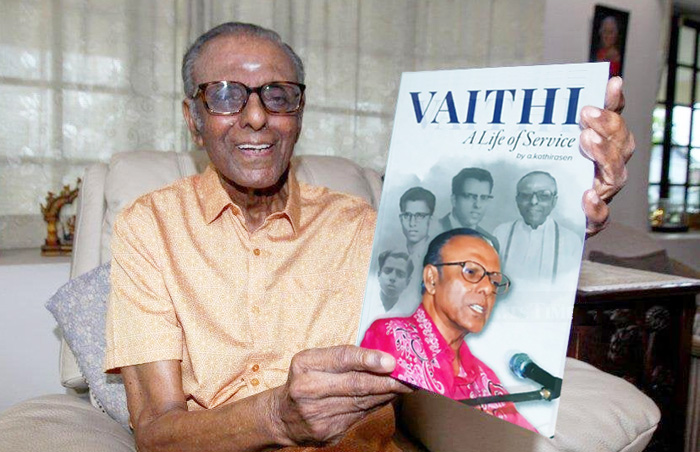
With his biography Vaithi: A Life of Service now out,
Datuk Vaithilingam reflects on a life devoted to sports, unity and community
Through it all, his approach remained the same: patience, dialogue and respect. "One thing I've learnt in life," he reflects, "is that when you go to meet people to seek understanding, you don't challenge them. You help them understand."
Having seen Malaysia grow as a nation from the time of Tunku Abdul Rahman Putra Al Haj, Vaithi has quietly witnessed history unfold while working behind the scenes to bridge divides. "My hope," he says softly, "is that everyone understands we have one nation and that this nation can only grow if we work together."
The book, Vaithi: A Life of Service, captures this journey - the milestones, the struggles and the values that have shaped his life.
When I finally ask how he would like to be remembered, Vaithi shakes his head. "I don't want that," he says firmly. "I never worked for myself. I worked for others."
He pauses, expression softening. Two of the people dearest to him - his wife, Pooranajothi and his eldest son, Nantha Kumar - never lived to see the book completed. Yet Vaithi knows they would have been proud. In many ways, the book honours them as much as it honours his life's work.
"Life has given me many roles to play," he says, adding: "I've tried to do each one with sincerity. If my work has helped even a little to bring people together - in sports, in faith, in community - then I think that's enough."
 The V.I. Web Page
The V.I. Web Page